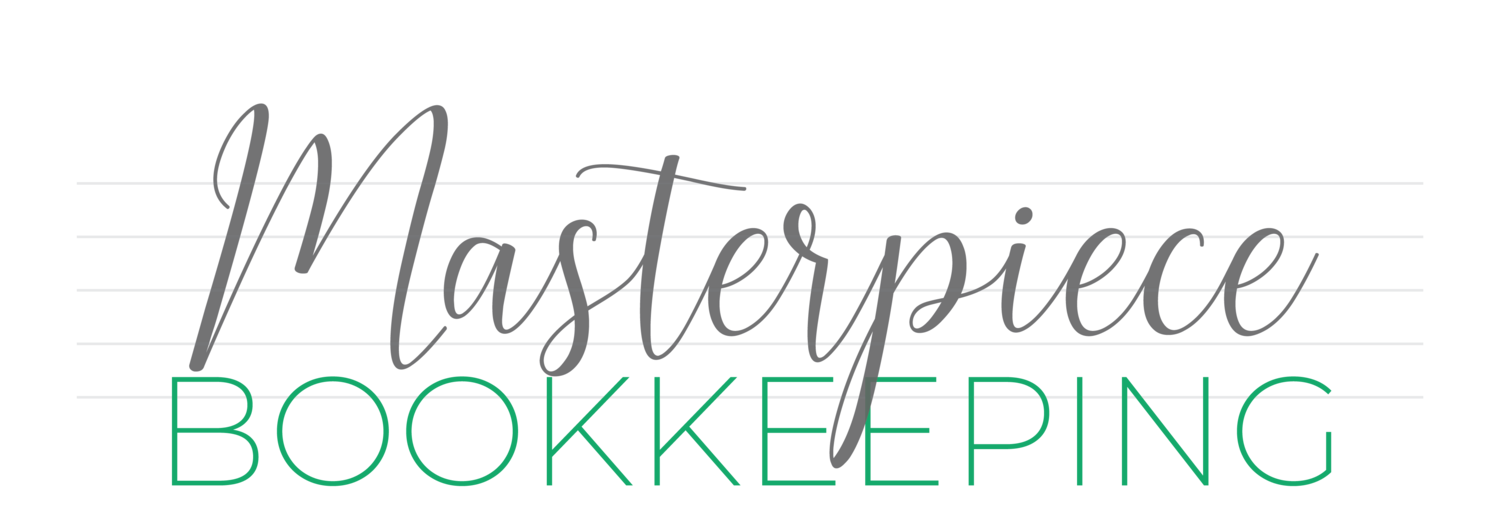You spend a bunch of time pulling together all of the financial information that you can find. You organize it the best you are able or have time for. You finally turn it over to your tax preparer. Phew - it’s in the hands of professionals now!
But what are they doing with the information you give them? I often find there’s a bit of a disconnect between what clients think their tax preparer is doing and what they actually do.
Tax preparers are amazing, necessary professionals. I do not envy them the job of keeping up with the tax code and figuring out the best way to help their clients. There just needs to be a better understanding of their role.
Myths about working with tax preparers
If you are paying a tax professional to prepare your personal & business tax returns, you are responsible for giving them all of the information that they need. Note that this article mostly relates to when your tax preparer is not doing your normal bookkeeping/accounting. Here are some common misconceptions to clear up.
Myth #1: Tax preparers expect a lot of documentation. Not even close - they do NOT want your box of receipts, the backup documentation or spreadsheets of transactions. They want a nice, neat little report with all of the categories already totaled by you. You’re paying them to do a tax return, not to organize your books.
Myth #2: Tax preparers verify everything you’ve given them. Not so. Once you hand over the neat little report, they use those numbers and go from there. The good ones will check your books to make sure the reconciliations are up to date and the balances are correct, but that is certainly not guaranteed. (We use an account called “Prior Period Adjustments” to fix things in prior years that were not caught, and it is used on every cleanup we do - without fail. And yes, the taxes have been filed for those years we are adjusting.) They also do not see what transactions you put into all of those categories to catch things that may not be deductible on your taxes. If it’s obvious, they may see it, but so much can be hidden in the detail. That’s on you.
Myth #3: Tax preparers will tell you if they see things you could change to help your tax situation. It’s important to note that tax preparation is different from tax planning. Know what you’re getting when you engage with a tax professional. When they are cranking out returns in the busy season, they’re not digging into ways to advise you unless you are paying for it. That is a different service, and I recommend you do have an advisory meeting with your tax professional.
When you work with a good bookkeeper…
… tax time looks a lot different. First of all, you’re not pulling everything together yourself. Your bookkeeping professional should be putting together a tax packet for you to simply give to your tax preparer. It should include a Balance Sheet, P&L, and notes for them on things they’ll want to know. Myth #1 doesn’t matter.
We also help with Myth #2. If you have a high quality bookkeeping professional, they’ll make sure everything in your books, and particularly on your Balance Sheet, is correct. They should have a basic understanding of what is deductible on your taxes, catch anything that’s not, and verify it with you. Anything questionable they can note for the tax preparer to evaluate.
As is true with any professional relationship, make sure to understand your role and the role of the person you’re working with. It clears up a lot of confusion! The bookkeeper and tax preparer dynamic can be great for your business when you consider how you all can work together. A bookkeeping professional makes everything much cleaner and easier for your tax preparer. And those tax pros are amazing at doing the returns and giving you tax advice.

